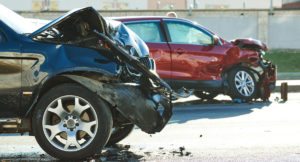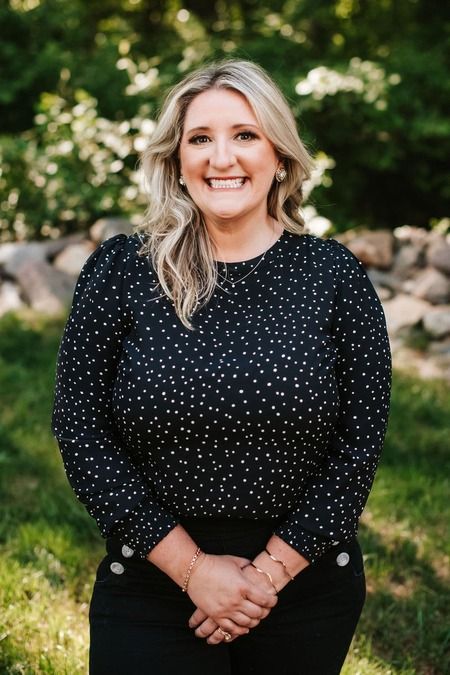Brooke graduated from the University of Richmond School of Law after receiving her undergraduate degree from the University of North Carolina at Chapel Hill. Brooke worked for five years in private practice with a law firm specializing in insurance defense litigation before becoming the trial litigator for Allstate Insurance Company in the metro Richmond area.

After a car accident, medical bills tend to show up before the insurance checks do. The costs can add up fast between emergency room visits, follow-up appointments, physical therapy, and maybe even surgery. And when the crash wasn’t your fault, one of the first questions on your mind is likely, Who pays for medical bills after a car accident?
The short answer is—it depends. In Virginia, covering medical bills after a car accident can be confusing. Different types of insurance may apply, and who ends up paying depends on who was at fault and what coverage you or the other driver have.
That’s where we come in.
At River Run Law, we help people across Virginia understand their options and take the proper steps after serious accidents. In this post, we’ll break down who pays the medical bills after a car accident in Virginia, what to expect from your insurance or the other driver’s, and what happens if medical bills exceed policy limits.
Who Pays the Medical Bills in a Car Accident?
You’ll most likely be responsible for your medical bills upfront, even if the other driver was clearly at fault. That doesn’t mean you won’t get reimbursed later—but the system doesn’t automatically put the at-fault driver on the hook immediately. Understanding who pays for medical bills after a car accident is crucial for navigating the process
Here’s a general breakdown of who could pay the medical bills after a car accident, depending on your situation:
- Your health insurance,
- MedPay coverage from your auto insurance,
- The at-fault driver’s insurance, or
- Underinsured motorist coverage.
Each option has particularities, which is why understanding your coverage and having a legal advocate can make a big difference. Let’s look at what this can involve in more detail.
Your Health Insurance
After a crash, you’ll need medical care—and the bills will usually go to your health insurance provider first. That’s true, even if someone else caused the accident. Immediately getting treatment is imperative, and your health insurance helps you avoid delaying care while the legal side gets sorted out.
Remember that you’re still responsible for meeting your deductible and paying any copays or coinsurance. Choosing in-network providers can also help lower out-of-pocket costs as your treatment continues.
If your health insurer covers part of your accident-related care, they may later place a lien on your injury settlement. That means they expect to be reimbursed if you receive compensation from the at-fault driver’s insurance.
At River Run Law, we work directly with healthcare providers to help make sure any liens are fair—and that you aren’t stuck paying more than you should.
MedPay Coverage
Medical Payments Coverage, or MedPay, is an optional add-on to your car insurance policy that can help after an accident. In short, it helps pay your medical bills immediately—regardless of who was at fault.
MedPay doesn’t require you to prove the other driver was responsible. That makes it one of the fastest ways to cover immediate expenses like ER visits, X-rays, or follow-up appointments. It can also help with bills your health insurance won’t cover, like deductibles and copays.
While MedPay limits tend to be on the lower side, it’s still a helpful safety net—especially in the first few weeks after a crash when the paperwork hasn’t caught up, but the bills are already arriving.
If you’re unsure whether your policy includes MedPay or how to use it, our team at River Run Law can walk you through it and help coordinate with your insurer so nothing gets missed.
At-Fault Driver’s Insurance
If someone else caused your accident, their auto insurance is supposed to cover your medical expenses and other damages. But it’s not always a quick or straightforward process.
You’ll need to file a third-party claim for the medical bills covered by the other driver’s insurance. To do so, you must prove the other driver was at fault and show the full extent of your medical costs. This can take time, especially if the insurance company pushes back or tries to shift blame.
It’s also important to understand that the at-fault driver’s insurance won’t pay your bills as they come in. Instead, they typically offer a lump-sum settlement after everything is finalized—which could be weeks, months, or years. In the meantime, you’ll likely need to rely on your health insurance, MedPay, or out-of-pocket payments to keep your accounts in good standing.
At River Run Law, we can help handle communication with the insurance company, build a strong case for liability, and fight to have your total medical costs included in any settlement discussion.
What Happens If Medical Bills Exceed Policy Limits?
Virginia law mandates minimum insurance coverage for all motorists. However, it’s not uncommon for medical bills to exceed the at-fault driver’s policy limits—especially after a serious crash. If that happens, you still have a few potential options:
- Underinsured motorist coverage. If your auto insurance policy includes underinsured motorist (UIM) coverage, it can help make up the difference.
- Suing the at-fault driver personally. In rare cases, you may be able to collect directly from the at-fault driver’s personal assets.
- Negotiating with medical providers. Your attorney can often negotiate reduced bills or payment plans with hospitals and doctors.
Because of this risk, it is essential to review your auto insurance policy and understand your coverage before an accident occurs.
What Is the Average Cost of Car Accident Medical Bills?
The average cost of car accident medical bills can vary widely depending on the severity of the injuries. It depends on the nature of your injuries, how long you need treatment, what kind of insurance coverage you have, and how the injuries affect your daily life.
Your auto or health insurance coverage will also play a role in what you owe—and what you can recover from the at-fault driver’s insurance.
At River Run Law, we don’t just tally up your past medical bills—we look ahead to the full impact of your injuries, including future treatment costs and how the accident has affected your ability to work or enjoy your life. We work with doctors, billing specialists, and insurance companies to help hold responsible parties accountable for their negligent actions.
Talk to a Virginia Car Accident Lawyer Today
Medical bills after a car accident can pile up fast—and figuring out who’s supposed to pay for what isn’t always straightforward. At River Run Law, we’re here to help take this weight off your shoulders. We’ll work to walk you through your options, deal with the insurance companies, and fight to help make sure you’re not stuck paying out of pocket for someone else’s mistake.
If you’ve been hurt in a crash and have questions about your medical bills, don’t wait. Reach out today for a free consultation.

